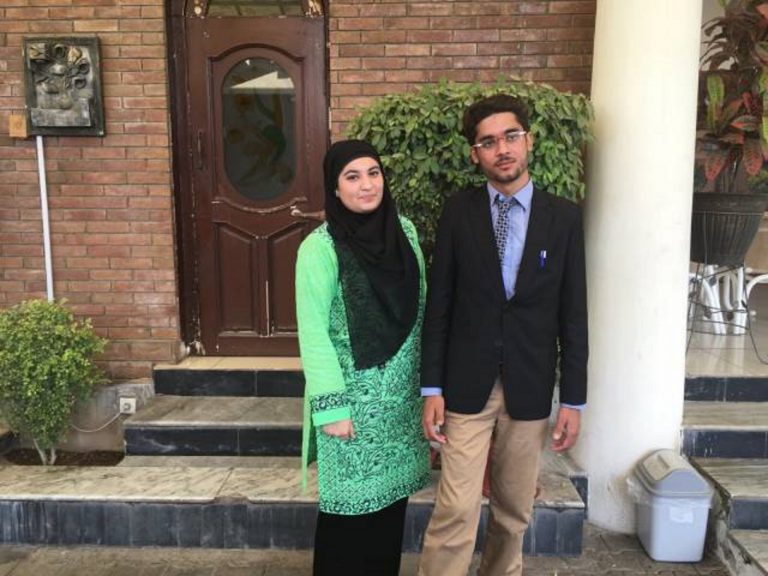
Two college students have collaborated on a project to find a cheap and environment-friendly alternative to burning fossil fuels, creating an innovative invention that converts kitchen waste into energy.
Ubaid Yousaf Khan from Wisdom Science College in Karak, and his partner, Mujga of Kypher Medical College in Peshawar, presented their creation at Peshawar Press Club yesterday.
“We wanted to find an environment-friendly and cheap alternative to fossil fuel as it is a known contributor to global warming, which is dangerous for the existence of human life,” said Ubaid. “Kitchen waste is rich in organic compounds. Therefore, we can produce large amounts of biogas from it.”

Plug valve for biogas. Via Shutterstock.
The entity being modified, or substrate, in this process is the kitchen waste; the organism being used to kick-start the reaction, or inoculum, is the waste from the sugar industry. The student scientists treated both substances in an anaerobic digester (without oxygen) for 15 days under varying temperatures and inoculum to substrate ratio.
Due to a lack of resources in the inventors’ local community, the pair had no option but to work on the project from inside their homes. After many days of observation, it took as long as 12 days for the production of biogas to increase. Production stopped and remained stationary after 15 days. The substance formed is then diluted with water to prevent the formation of volatile fatty acid which would hinder the production of biogas. It was noted that maximum production occurred at 35°C.
“Natural generation of biogas is an important part of [the] biogeochemical carbon cycle. It can be used in both rural and urban areas,” said Ubaid.
Biofuel freight train. Via Shutterstock.
According to the students, one tonne of kitchen waste can produce up to 350kg of biogas, which are formed by bacteria through the biodegradation of organic material under anaerobic conditions.
“The total cost of this process is RS10,500,” adds Ubaid. “If it is scaled for commercial purposes, , the cost of the process will be RS100,000, which will produce 320kg gas.
“K-P government’s green movement can benefit through this method as biogas can be produced and its waste can be used as fertilizer.”
At yesterday’s demonstration, the scholars also urged the rural and federal governments to build quality research institutes for talented youth in the country, which would allow them to work in professional, properly-equipped environments rather than inside their houses.
Image via The Express Tribune.
Liked this? Then you’ll love these…
Scientists from NYU advance on the causes of Autism
University scientists uncover new way of determining whether planets can harbour life







